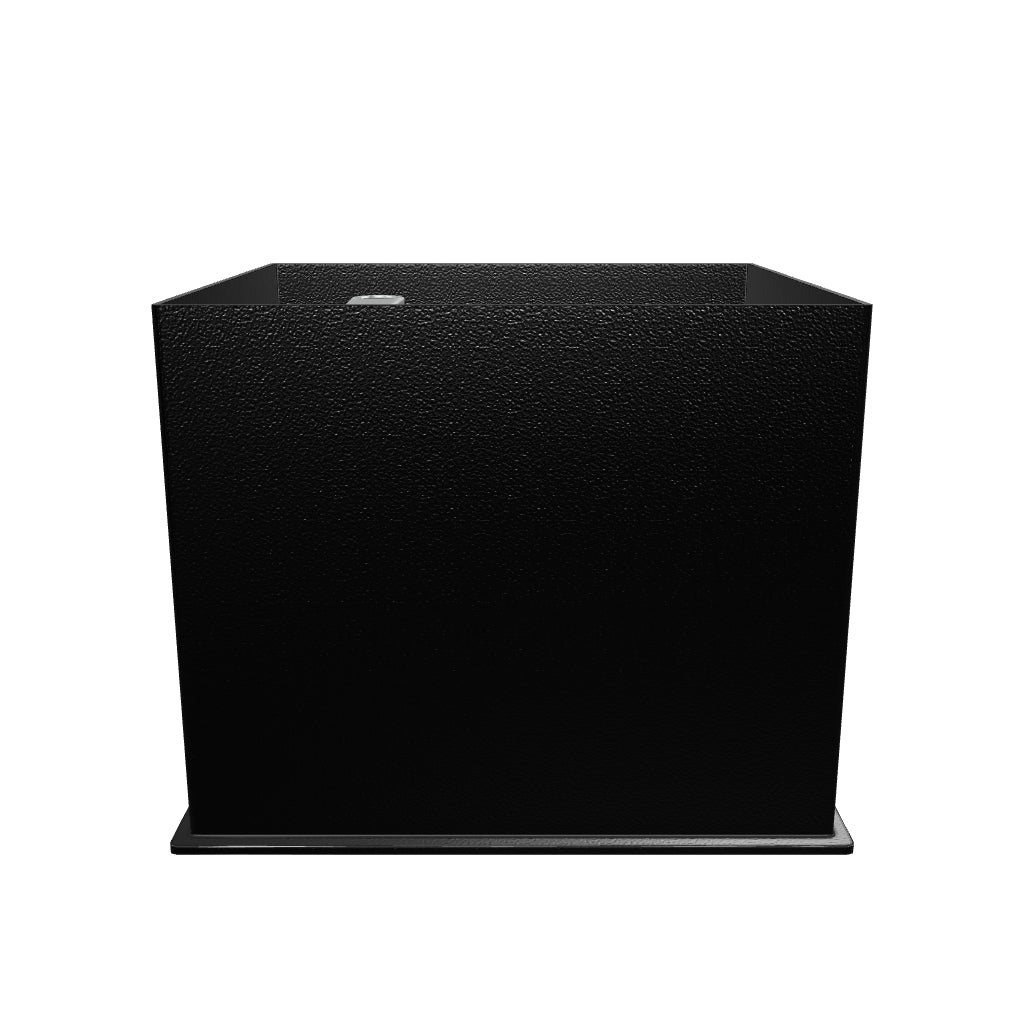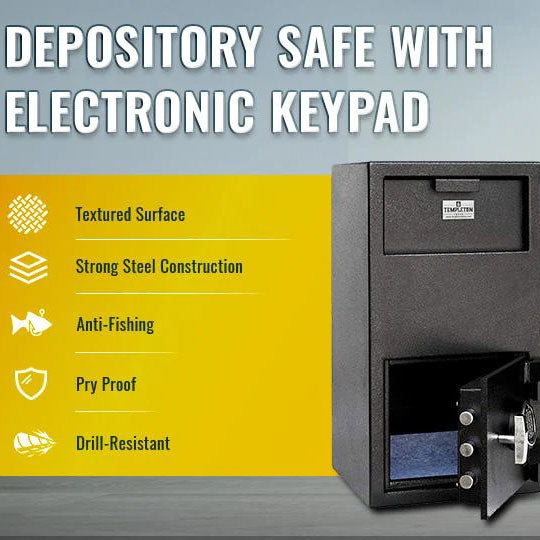Substance Abuse Centers and HIPAA Compliance: Using Security Safes for Privacy
In substance abuse treatment centers, maintaining patient confidentiality is not just a moral obligation; it's a legal requirement under the Health Insurance Portability and Accountability Act (HIPAA). Ensuring the privacy and security of sensitive patient records, medications, and personal belongings is critical to the success of any treatment program. One effective solution to help meet these stringent security requirements is the use of security safes.
Why HIPAA Compliance Matters for Substance Abuse Centers
HIPAA compliance is essential for substance abuse centers to protect patient information from unauthorized access, breaches, or theft. These facilities handle sensitive data, including medical histories, treatment plans, and payment details, making them prime targets for cyber and physical threats.
Failing to comply with HIPAA regulations can result in severe penalties, legal issues, and loss of trust from patients and their families. This is why it’s crucial for centers to implement secure storage solutions, such as substance abuse center security safes, to ensure they meet regulatory standards.
Key HIPAA Requirements for Security Safes
When choosing security safes for HIPAA compliance, substance abuse centers must consider the following:
-
Physical Safeguards – Safes should be designed to prevent unauthorized access and theft of sensitive information.
-
Access Control – Only authorized personnel should have access to safes containing confidential patient information.
-
Audit Controls – Some safes come with audit trail capabilities to track who accessed them and when.
-
Durability and Fire Resistance – HIPAA requires that records be protected against physical hazards such as fire and flooding.
The Role of Security Safes in Substance Abuse Centers
Substance abuse centers deal with a variety of sensitive materials that require secure storage, including:
1. Patient Records
Medical records and personal information must be kept safe from unauthorized access. Security safes ensure compliance with HIPAA regulations by providing:
-
Locking mechanisms to prevent unauthorized entry
-
Fireproof and waterproof options for disaster protection
-
Customizable shelving for organized document storage
2. Prescription Medications
Controlled substances such as methadone, buprenorphine, and other medications used in treatment programs must be securely stored to prevent misuse or theft. Security safes for medications offer:
-
High-security locking systems
-
Access tracking through biometric or electronic locking systems
-
Tamper-proof construction to deter unauthorized access
3. Staff and Patient Belongings
Keeping personal items secure fosters a sense of trust and safety in the treatment environment. Safes designated for staff and patient use provide:
-
Individual storage compartments for privacy
-
Keyed or combination locks for accessibility
-
Compact designs to fit in rooms or common areas
Choosing the Right Security Safe for Your Facility
Selecting the right safe involves considering several factors, such as the level of protection required, budget constraints, and ease of use. Here are some features to look for:
1. Types of Locks
Different locking mechanisms provide varying levels of security. Options include:
-
Electronic Keypads: Allow for easy access and quick code changes
-
Biometric Scanners: Provide secure access with fingerprint recognition
-
Traditional Key Locks: Reliable and simple but require careful key management
2. Fireproof and Waterproof Ratings
HIPAA requires that records be safeguarded against environmental hazards. Choose safes with appropriate UL ratings to ensure fire and water resistance.
3. Size and Storage Capacity
Consider the volume of materials you need to store and choose a safe that can accommodate growth.
4. Mobility and Installation
Wall-mounted or floor-bolted safes add an extra layer of protection, while portable safes offer flexibility.
Best Practices for Implementing Security Safes in Substance Abuse Centers
To maximize the effectiveness of security safes, substance abuse centers should follow these best practices:
1. Staff Training and Access Control
Ensure that staff are trained on how to properly use safes and understand the importance of HIPAA compliance. Limit access to authorized personnel only.
2. Regular Audits and Security Checks
Perform regular checks to verify that safes are functioning correctly and that access logs are reviewed for any suspicious activity.
3. Multi-Layered Security Approach
Security safes should be part of a comprehensive security strategy that includes surveillance cameras, alarm systems, and restricted access areas.
Secure Your Substance Abuse Center with Templeton Safes
Protect Sensitive Data and Medications with Confidence
At TempletonSafes.com, we understand the unique security challenges faced by substance abuse treatment centers. Our high-quality safes are designed to help your facility meet HIPAA compliance standards, ensuring that patient records, medications, and personal belongings remain secure at all times.
Why Choose Templeton Safes?
-
HIPAA-Compliant Storage: Our safes provide the physical safeguards required to protect sensitive patient information.
-
Advanced Security Features: From electronic keypads to biometric access control, our safes ensure only authorized personnel can access important items.
-
Fireproof and Waterproof Protection: UL-rated safes protect your valuable documents and medications from unforeseen disasters.
-
Customizable Solutions: We offer a variety of sizes and locking mechanisms to fit your facility's unique needs.
-
Trusted by Healthcare Professionals: Our safes are used in leading substance abuse centers across the country.
Secure Your Facility Today
Don't take chances with compliance and security. Trust Templeton Safes to provide the highest level of protection for your facility.
Visit TempletonSafes.com today to explore our range of security solutions and find the perfect fit for your needs!
Templeton Safes – Protecting What Matters Most.
Why HIPAA Compliance Matters for Substance Abuse Centers
Ensuring HIPAA compliance in substance abuse centers is a challenging yet vital task. Utilizing substance abuse center security safes is a practical solution to safeguard sensitive information, medications, and personal belongings. By investing in high-quality security safes, centers can enhance privacy, protect patient trust, and avoid costly legal repercussions.
If you're looking to improve the security measures at your facility, consider implementing certified security safes that align with HIPAA requirements. It’s an investment in the safety and well-being of your patients and staff.






























